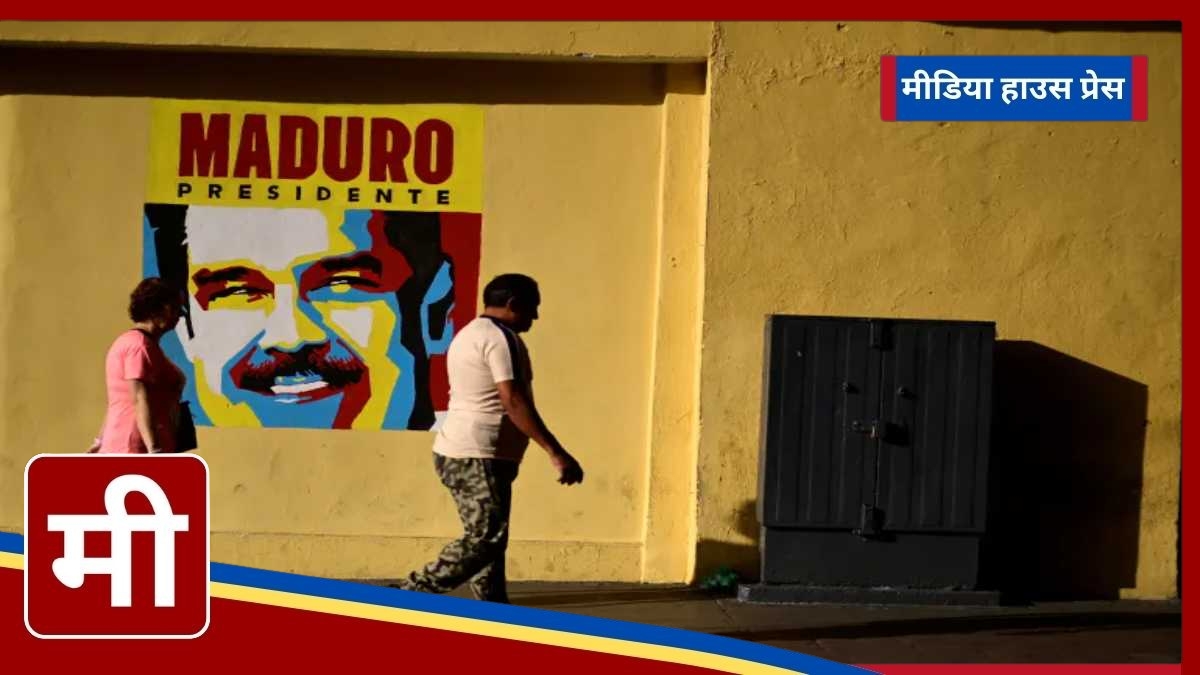Venezuela Blocks Brazil Representation of Argentina, Escalating Tensions Amidst Post-Election Crisis

venezuela – brésil: In a bold diplomatic move, Venezuela’s government under President Nicolás Maduro has cut off Brazil’s authority to represent Argentina’s interests within the country, intensifying post-election tensions following Venezuela’s contested July presidential vote. This decision terminates Brazil’s oversight of Argentina’s embassy in Caracas, which has also served as a safe haven for six Venezuelan opposition members seeking asylum.
Venezuelan Government Ends Brazil’s Custody Over Argentine Embassy
Announced on Saturday, this decision has sparked international concern, especially as the Argentine embassy is currently housing opposition figures targeted by Maduro’s administration. Venezuela’s government justified its action with unverified claims that assassination plots were being orchestrated within the embassy premises, demanding an immediate cessation of Brazil’s role in managing Argentine interests in Caracas.
However, Brazil swiftly countered with its own statement, asserting that it would continue its stewardship over the Argentine embassy based on international agreements, specifically the Vienna Conventions. Brazil stressed the “inviolability of diplomatic facilities,” warning that the Venezuelan government has no legal right to interfere with the embassy’s operations.
Embassy Under Surveillance Amid Security Concerns
On Friday night, asylum-seeking opposition members within the embassy reported suspicious surveillance, along with electricity outages at the Argentine facility. Videos shared on social media depicted intelligence agents patrolling the building, raising concerns for the safety of the Venezuelan opposition figures. These six individuals initially sought asylum in the embassy in March, following the Venezuelan government’s decision to prosecute them on conspiracy charges.
Election Controversy Sparks Widespread Protests and International Scrutiny
This latest diplomatic rift comes at a time of intensifying domestic and international criticism of Maduro’s recent election win. On July 28, Maduro declared himself victorious for a third term, a claim met with significant skepticism as no vote breakdown was provided. Venezuelan opposition parties, led by candidate Edmundo Gonzalez Urrutia, have labeled the election as fraudulent. Opposition leaders presented precinct-level voting records indicating that Gonzalez received double the votes of Maduro. Despite the opposition’s call for transparency, Maduro’s government has rejected these claims.
Brazil, along with other South American governments, has withheld recognition of Maduro’s victory, demanding verifiable vote data. The election controversy has since ignited mass protests across Venezuela, with citizens rallying for fair elections and calling on Maduro to resign. Human Rights Watch recently reported that at least 23 protesters have lost their lives in violent crackdowns by Venezuelan security forces, condemning the government’s response as “shockingly brutal.”
Escalating Crackdown on Opposition Figures
Maduro’s government has escalated its measures against opposition members. This week, the administration issued an arrest warrant for Gonzalez, the opposition leader, for failing to comply with a summons on allegations of conspiracy, forgery, and incitement. Critics argue that these charges are politically motivated and aimed at dismantling the opposition’s growing influence.
Brazil Holds Firm on Embassy Representation, Signals Regional Unity
Despite Venezuela’s move to strip Brazil of its role, Brazil remains resolute, declaring it will uphold its representation of Argentina’s interests until another arrangement is reached. Argentina had previously severed its diplomatic ties with Maduro’s administration, prompting Brazil to take on the custodianship role. Brazil’s insistence on upholding its responsibilities highlights a shared regional stance, as South American governments increasingly challenge Maduro’s leadership and human rights practices.
What’s Next?
As Venezuela faces mounting pressure from both domestic protests and international scrutiny, the Maduro administration’s hardline tactics have drawn sharp criticism from human rights organizations and neighboring governments alike. The diplomatic tensions between Venezuela and Brazil underscore the region’s increasing division over Maduro’s presidency, a split that could shape future alliances and influence political dynamics across South America.
With the post-election unrest showing no signs of abating, the coming weeks could be pivotal for Venezuela as citizens, governments, and human rights groups continue to press for transparency, reform, and an end to political repression.



